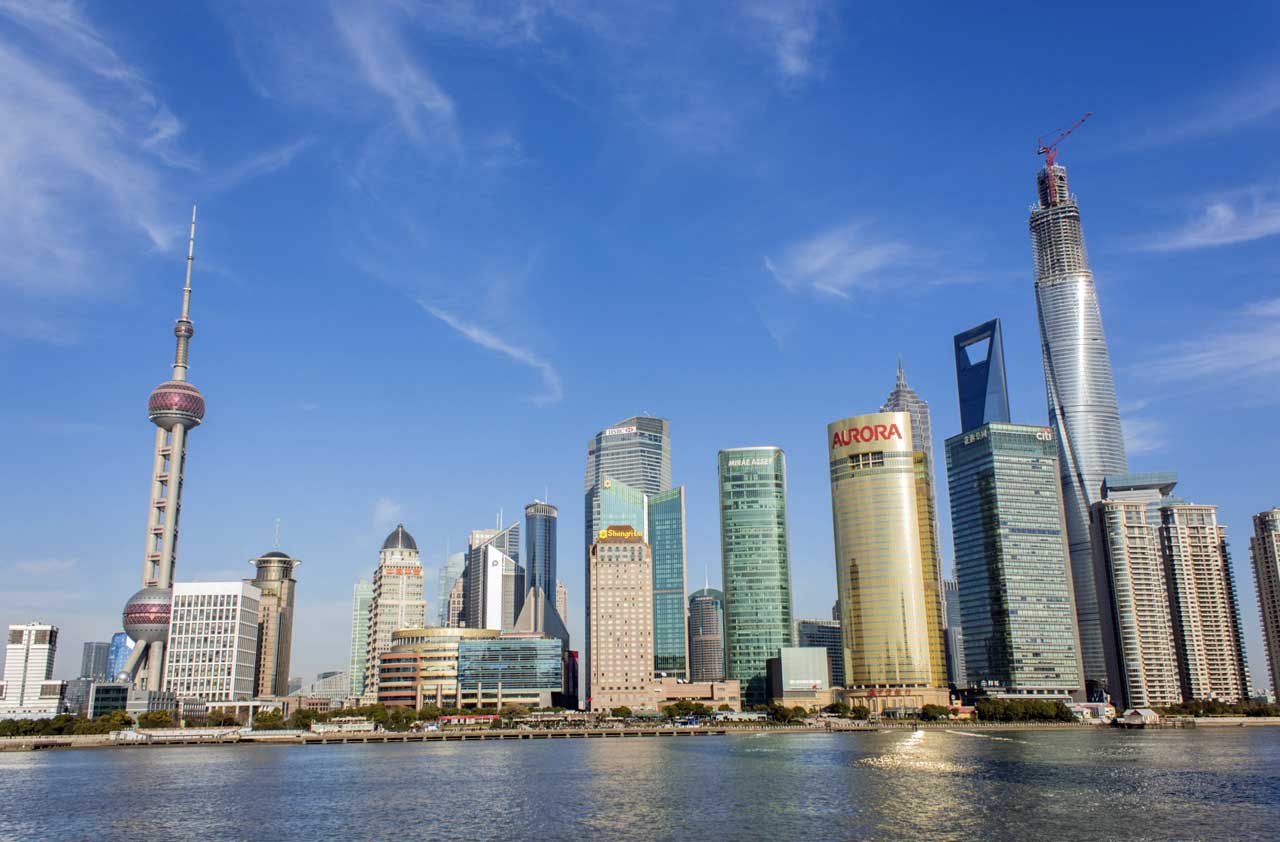How U.S. Investors Should Play the Chinese Stock Market Crash
Investing in China comes with big risks. There are better ways and better places to invest abroad.


Profit and prosper with the best of Kiplinger's advice on investing, taxes, retirement, personal finance and much more. Delivered daily. Enter your email in the box and click Sign Me Up.
You are now subscribed
Your newsletter sign-up was successful
Want to add more newsletters?

Delivered daily
Kiplinger Today
Profit and prosper with the best of Kiplinger's advice on investing, taxes, retirement, personal finance and much more delivered daily. Smart money moves start here.

Sent five days a week
Kiplinger A Step Ahead
Get practical help to make better financial decisions in your everyday life, from spending to savings on top deals.

Delivered daily
Kiplinger Closing Bell
Get today's biggest financial and investing headlines delivered to your inbox every day the U.S. stock market is open.

Sent twice a week
Kiplinger Adviser Intel
Financial pros across the country share best practices and fresh tactics to preserve and grow your wealth.

Delivered weekly
Kiplinger Tax Tips
Trim your federal and state tax bills with practical tax-planning and tax-cutting strategies.

Sent twice a week
Kiplinger Retirement Tips
Your twice-a-week guide to planning and enjoying a financially secure and richly rewarding retirement

Sent bimonthly.
Kiplinger Adviser Angle
Insights for advisers, wealth managers and other financial professionals.

Sent twice a week
Kiplinger Investing Weekly
Your twice-a-week roundup of promising stocks, funds, companies and industries you should consider, ones you should avoid, and why.

Sent weekly for six weeks
Kiplinger Invest for Retirement
Your step-by-step six-part series on how to invest for retirement, from devising a successful strategy to exactly which investments to choose.
Greece is hogging the spotlight these days, but a bigger drama might be playing out in China, where a tumbling stock market could continue to send shock waves well beyond its borders.
Over the last three weeks, the main Shanghai Composite Index has lost around a third of its value in extremely volatile trading. As the selling has persisted, it’s infected other markets. Hong Kong’s Hang Seng Index plunged 5.8% Wednesday while Japan’s Nikkei 225 Index slumped 3.1%. While Chinese stocks rebounded at week's end, the market is so unsettled that regulators suspended trading on more than 1,300 companies, about 40% of the market, worth $2.6 trillion of equity, according to Bloomberg. “The ferociousness of the sell-off even took us by surprise,” said analysts at Bank of America Merrill Lynch in a client note.
With the exception of some U.S.-listed Chinese companies, most Americans don’t invest directly in Chinese stocks. The Shanghai market is now open to foreign investors. But Chinese authorities restrict the amount of shares foreign investors can buy on the mainland and cap purchases at a small fraction of daily trading volume. Much of the market is a forum for mom-and-pop traders to bet on domestic companies. Many of these rookie traders effectively bought stock with borrowed money—a practice known as buying on margin—and are now stampeding for the exits as brokerage firms call in their loans, according to Merrill Lynch.
From just $107.88 $24.99 for Kiplinger Personal Finance
Become a smarter, better informed investor. Subscribe from just $107.88 $24.99, plus get up to 4 Special Issues

Sign up for Kiplinger’s Free Newsletters
Profit and prosper with the best of expert advice on investing, taxes, retirement, personal finance and more - straight to your e-mail.
Profit and prosper with the best of expert advice - straight to your e-mail.
Even if you don’t own Chinese stocks, chances are you have some exposure through mutual funds, especially if you invest in emerging markets. Chinese companies, including many listed in Hong Kong, account for 25% of the MSCI Emerging Market Stock Index, and diversified emerging market funds have shed 6.0% in the last month, according to Morningstar. China region funds have fared much worse, not surprisingly, down 17% in the past month and down 1% for the year.
Why China is a concern
The immediate pain in China may be limited to domestic investors, but plenty of companies around the world would be impacted by a protracted slowdown in China’s economy—a locomotive of global growth. Analysts worry that the market crash could rattle Chinese consumer confidence and spending, putting the brakes on demand for a wide range of goods and services. While a healthy stock market can have a so-called wealth effect, which gives investors the confidence to spend more because their portfolios are growing, a sickly market can cause spending to dry up.
How much that matters in China is now the trillion dollar question. A surging stock market didn’t trigger a large wealth effect on the way up because investing by individuals isn’t as widespread in China as it is in other countries, says Riad Younes, co-manager of the RSQ International Equity Fund (RSQVX). As such, the tug on the way down may not be strong either, he says.
Moreover, the Chinese government would likely deploy stimulus measures to keep the economy humming. Beijing has already cut interest rates three times in the past six months, a move that encourages business investment by making it cheaper to borrow money, and more stimulus would likely come if it looks like the economy is weakening. The government is also trying to stabilize the stock market by adding liquidity to brokerage firms and restricting initial public offerings, among other measures.
Even if China slows just a bit, though, it could have wide-ranging impact. Many multinational companies have invested heavily in China, betting that Chinese consumers will line up for Western goods as their purchasing power increases. That may still pan out, but a slowdown in the near term could impact profits for scores of firms ranging from tech giant Qualcomm (QCOM) to baby formula maker Mead Johnson Nutrition (MJN).
The U.S. dollar also could resume its upward march if investors flock to U.S. assets as a safe haven. The rising dollar has already pressured profits for many U.S. multinationals because earnings in foreign currencies lose value when they’re converted to dollars that have appreciated, notes Younes. Profit margins could also decline if the dollar strengthens further. “Corporate profit margins are double their historical average,” he says. “Sooner or later they’ll have to come down.”
Is this a buying opportunity?
Despite the recent crash, Chinese stock aren’t cheap. The Shanghai Composite Index is still up 94% from a year ago and trades at 17 times trailing earnings, well above the 10 times earnings of last summer. That current multiple isn’t excessive by global market standards, but it’s a steep price to pay for Chinese stocks against a backdrop of stalling economic growth and earnings that are “rapidly decelerating,” according to Merrill Lynch strategist David Cui. Investors should steer clear until things stabilizes, he advises.
Younes isn’t dipping into Chinese stocks either, though he likes a handful of companies for their long-term growth potential. Among his favorites are Tencent Holdings (TCEHY), Baidu (BIDU) and JD.com (JD)—all Internet companies expanding rapidly. “We think the correction in their stocks is unjustified,” he says, though he’s waiting for the market to cool down before buying more shares.
If you don’t have the stomach for individual stocks, another way to invest is via mutual funds. We recently recommended AllianzGI China Equity (ALQDX), a China regional fund with no sales load and reasonable expenses. However, the recommendation came with the caveat that no more than 5% of your stock portfolio should be exposed to this high-risk sector. A better bet might be a diversified Asia stock fund such as Matthews Asian Growth and Income (MACSX), a member of the Kiplinger 25, a list of our favorite no-load mutual funds. The fund held 36.2% in China/Hong Kong stocks (as of March 31). Though Matthews Asian owns domestic Chinese stocks, it also invests in multinational firms with lots of exposure to China including restaurant chain Yum Brands (YUM) and global bank HSBC Holdings (HSBC). None are immune to a slowdown in China, but they stand to benefit mightily if China can recover its economic mojo.
If you’re looking to invest abroad but could do without the current volatility of Chinese stocks, consider Europe instead. The outlook for European stocks is promising and the Greek debt crisis might be creating a nice buying opportunity. We recently recommended several attractive European funds and dividend-paying European stocks.
Profit and prosper with the best of Kiplinger's advice on investing, taxes, retirement, personal finance and much more. Delivered daily. Enter your email in the box and click Sign Me Up.

-
 5 Investing Rules You Can Steal From Millennials
5 Investing Rules You Can Steal From MillennialsMillennials are reshaping the investing landscape. See how the tech-savvy generation is approaching capital markets – and the strategies you can take from them.
-
 The Tool You Need to Avoid a Post-Divorce Administrative Nightmare
The Tool You Need to Avoid a Post-Divorce Administrative NightmareLearn why a divorce decree isn’t enough to protect your retirement assets. You need a QDRO to divide the accounts to avoid paying penalties or income tax.
-
 When Estate Plans Don't Include Tax Plans, All Bets Are Off
When Estate Plans Don't Include Tax Plans, All Bets Are OffEstate plans aren't as effective as they can be if tax plans are considered separately. Here's what you stand to gain when the two strategies are aligned.
-
 If You'd Put $1,000 Into AMD Stock 20 Years Ago, Here's What You'd Have Today
If You'd Put $1,000 Into AMD Stock 20 Years Ago, Here's What You'd Have TodayAdvanced Micro Devices stock is soaring thanks to AI, but as a buy-and-hold bet, it's been a market laggard.
-
 If You'd Put $1,000 Into UPS Stock 20 Years Ago, Here's What You'd Have Today
If You'd Put $1,000 Into UPS Stock 20 Years Ago, Here's What You'd Have TodayUnited Parcel Service stock has been a massive long-term laggard.
-
 If You'd Put $1,000 Into Lowe's Stock 20 Years Ago, Here's What You'd Have Today
If You'd Put $1,000 Into Lowe's Stock 20 Years Ago, Here's What You'd Have TodayLowe's stock has delivered disappointing returns recently, but it's been a great holding for truly patient investors.
-
 If You'd Put $1,000 Into 3M Stock 20 Years Ago, Here's What You'd Have Today
If You'd Put $1,000 Into 3M Stock 20 Years Ago, Here's What You'd Have TodayMMM stock has been a pit of despair for truly long-term shareholders.
-
 If You'd Put $1,000 Into Coca-Cola Stock 20 Years Ago, Here's What You'd Have Today
If You'd Put $1,000 Into Coca-Cola Stock 20 Years Ago, Here's What You'd Have TodayEven with its reliable dividend growth and generous stock buybacks, Coca-Cola has underperformed the broad market in the long term.
-
 What Fed Rate Cuts Mean For Fixed-Income Investors
What Fed Rate Cuts Mean For Fixed-Income InvestorsThe Fed's rate-cutting campaign has the fixed-income market set for an encore of Q4 2024.
-
 If You Put $1,000 into Qualcomm Stock 20 Years Ago, Here's What You Would Have Today
If You Put $1,000 into Qualcomm Stock 20 Years Ago, Here's What You Would Have TodayQualcomm stock has been a big disappointment for truly long-term investors.
-
 If You'd Put $1,000 Into Home Depot Stock 20 Years Ago, Here's What You'd Have Today
If You'd Put $1,000 Into Home Depot Stock 20 Years Ago, Here's What You'd Have TodayHome Depot stock has been a buy-and-hold banger for truly long-term investors.